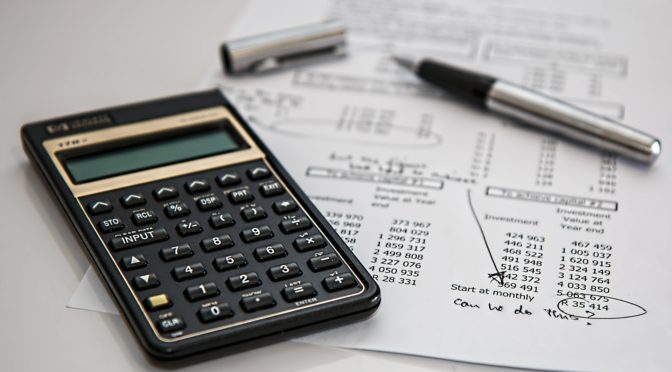When it comes to earning a return on your investment, few opportunities rival those available through learning where to buy tax lien certificates. By purchasing these certificates, you can earn interest on the money you’ve invested while also positioning yourself to take ownership of the underlying property in the event of a default by the owner.
It’s a win-win proposition that can provide you with a steady stream of income and asset appreciation over time. So what are tax lien certificates, and how can you get started investing in them? Read on to find out.
When you buy a tax lien certificate, you are buying someone else’s delinquent property taxes.
What is a tax lien?
A tax lien is an encumbrance placed on the title of your property. It means that you owe money and unless you pay it, someone else can take your house or other real estate from you. For delinquent taxes, there are two possible liens: (1) Federal (for federal income taxes) and (2) State or local.
In most states, tax liens must be paid out of the proceeds from a sale. But in certain states, such as California and New York, you may become liable for up to twenty years’ worth of taxes that accrue interest every year even if you do not sell your house or property during that time.
What is a tax lien certificate?
Tax lien certificates are pieces of paper that give someone else a legal claim against your house or other real estate in exchange for canceling your outstanding debt to the government.
You can buy this certificate from an existing creditor who has been awarded the right to collect it by selling it for less than its face value. In most cases when you buy a tax lien certificate you are the only bidder at the sale.
This means that there is no competition and you can buy it for very little money down, leaving years or even decades where the taxes accrue interest but do not have to be paid. Once this happens, your chances of losing your home increase significantly, because you will become liable for the full amount of the debt plus additional penalties and fees over time.
What is a tax deed?
A tax deed is a process by which a local government takes ownership of real property from its owner in order to raise revenue. It is then sold on public auction to satisfy delinquent property taxes or other government-imposed charges such as water bills. In many states, after several years of nonpayment, a tax deed may be offered to the public.
If no one else bids at the sale, you get it for the amount owed plus fees and there is nothing more that you have to do–no additional taxes or other costs accrue, and the county takes ownership of your property. As a general rule, a tax lien certificate holder does not need to pay for improvements made to the property after he has sold it.
How do I buy tax liens?
You can go online and print out applications for both federal and state tax lien certificates that are available in your area. You also need an EIN (Employer Identification Number) which you will receive automatically by filing IRS Form SS-4.
Then contact title companies who will sell you the certificate at auction, usually for less than one percent of its face value. If the account has not already gone to tax deed, you will then be free to negotiate with whoever holds the first mortgage on the property and try to work out a deal that cancels your debt in exchange for taking over their lien on the home.
The biggest benefit is that you will end up owning this house outright, which can often prove to be quite profitable. You own it free and clear so long as there are no future tax liabilities or fees due against it.
While many people think they might find “just” any old run-down house at the sale, there are actually numerous homes listed for sale by banks because nobody could afford a mortgage at a time when the economy is faltering.
This means that if you have enough money to buy the house and enough patience to wait until it sells, you could come out ahead in a number of ways.

The tax lien market has expanded tremendously in the past decade. Tax liens are available in every state, and many localities across the country offer them to investors through Internet auction-style websites.
But before you jump in with both feet, keep in mind that there are key differences between buying at an auction versus buying directly from a government agency, and these differences could impact the value of your investment.
Collect delinquent property taxes
A tax lien can generally be looked at as an IOU that entitles you to collect delinquent property taxes owed by the owner of real estate or other property when the owner fails to pay. When you buy a tax lien certificate, you are buying someone else’s delinquent property taxes.
The process varies somewhat depending on whether your state uses counties or townships to collect property taxes, but typically, when an owner fails to pay his or her tax bill on time, the local government will send out work crews to put a tax lien on the property.
The delinquent owner then has three to six months, depending on state law, to take care of the unpaid bill before it becomes delinquent and goes up for sale.
When a government or taxing authority puts a tax lien up for sale, there will be somewhere between one and four separate liens available at any given time, each with its own name and identifier number (depending on whether there is more than one parcel of land tied into the tax lien) and an identifying number that ties back to the delinquency date.
This way investors can choose which properties they want to buy based on how much work they think will be involved in collecting delinquent taxes from the owners. A typical tax lien certificate will run between one and six months.
Who can buy tax lien certificates?
It’s not as easy to answer this question as you might think because there are two different types of buyers: those who pursue the delinquent owner for payment, and those that merely assign their interest in the certificate to someone else. There are pros and cons to both paths.
Sometimes investors just want to buy tax lien certificates with plans to immediately sell them on secondary marketplaces like ListedBuy.com to avoid all the hassle of chasing down unpaid property taxes.
These buyers generally take a loss on properties where they do not recoup their investment or they simply opt out early by selling their lien certificates on the secondary marketplace.
Other investors, especially those who like to use the strategy of tax lien arbitrage buy them with plans to take over ownership and collect delinquent taxes owed.
Tax lien certificates are primarily sold by governments (counties, townships, cities), but they can also be purchased at auctions or through private sale agents. The prices for tax lien certificates typically range between 50 cents and $5 per parcel depending on how much work is involved in collecting unpaid property taxes.

What kind of returns can I expect?
Typically, investors will receive between 5% to 16% annually when buying individual liens – but this depends on the state where the investment takes place as well as the nature of each case.
Investors can expect higher returns if they buy into more challenging liens, like those with more delinquent taxes or if they buy them at auction. The average annual return on tax lien certificates (not including capital gains) is about 12%, according to the National Tax Lien Association (NTLA).
Suppose you have $1,000 and you buy 10 individual tax lien certificates in your state for an average of $0.50 each ($5 in total), which carries a typical rate of return of about 12%. If the unpaid property taxes are collected over one year, you could have 100% profit with that same amount of money – or just $1,000 equity invested into the portfolio returns.
Tax lien certificates are marketable securities that can be sold on secondary marketplaces like ListedBuy.com. They are considered very safe investments but are not FDIC insured. There are certain risks associated with buying tax lien certificates that an investor should keep in mind.
For one thing, there is the “moral hazard” of dealing with delinquent taxpayers who may be hard to track down or unwilling to pay up once they do get tracked down, which can lead to potential losses on the investment.
Some investors also worry about governments raising taxes on property owners instead of merely collecting unpaid taxes from them – especially when values drop and owners become unable to pay the increased rates for their property. And then there’s always the risk that a tax lien certificate could drop in value if more precise information comes out about the taxpayer’s ability to pay down the debt.
What are some key things to remember?
While learning where to buy tax lien certificates can be a solid investment avenue, investors should always do their research before jumping in throughout the process.
Most importantly, check with a tax professional and a real estate agent to get an idea of how strong demand is for properties in the area, how difficult it will be to find delinquent owners, and whether you’ll have enough time or resources necessary to secure payment from them.
Tax liens only go on the title after they have been paid off – meaning that any profits come from collecting unpaid property taxes owed by homeowners beyond what is collected at auction. In other words, the longer it takes you to recoup your initial investment on a lien certificate, the lower your returns will be.
LEARN MOREThe above is for information on where to buy tax lien certificates, is for informational purposes only. The health wealth lifestyle endeavors to educate, enlighten and share a possible solution to your inquiry. Please consult your physician, tax planner, or any other trusted professional as you see fit.
